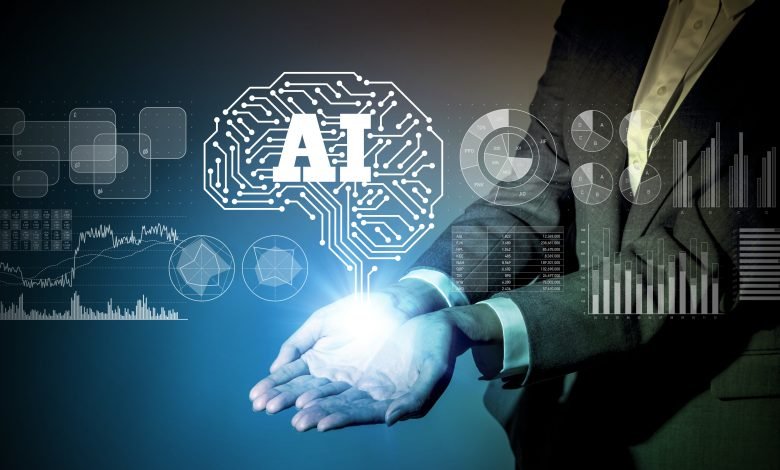AI to be the biggest disruptor in shaping future work globally: Economic Survey 2023-24

The Economic Survey 2023-24 has identified artificial intelligence (AI) as a significant disruptor that will shape the future of work globally. As AI continues to evolve, it presents both opportunities and risks that countries must navigate. For India, with its large and youthful demographic, the potential to harness AI for economic growth and job creation is immense. However, this technological revolution also poses challenges, particularly for sectors like business process outsourcing (BPO), which faces the threat of automation.
The Impact of AI on India’s BPO Sector
The BPO sector has been a cornerstone of India’s economic growth, providing employment to millions and contributing significantly to the country’s GDP. However, the advent of AI-driven chatbots and other automation tools is expected to revolutionise routine cognitive tasks traditionally handled by BPO employees. According to the Economic Survey 2023-24, this technological shift could lead to a substantial decline in employment in the BPO sector over the next decade.
AI-driven chatbots and automation tools are capable of handling customer service inquiries, data entry, and other routine tasks more efficiently and cost-effectively than human workers. This poses a significant risk to the BPO workforce, many of whom may find their jobs redundant. The challenge for India is to manage this transition in a way that minimises job losses while maximising the benefits of increased productivity and efficiency.
Long-term Productivity Gains from AI
Despite the immediate risks to employment, the gradual diffusion of AI is anticipated to boost productivity in the long term. AI can enhance decision-making processes, streamline operations, and drive innovation across various sectors. For instance, in healthcare, AI can assist in diagnosing diseases and personalising treatment plans. In agriculture, AI can optimise crop yields and reduce waste. These productivity gains can lead to economic growth and the creation of new job opportunities in emerging industries.
India’s large and youthful population is a unique advantage in this context. With a median age of 28, India has a workforce that is adaptable and capable of acquiring new skills. By investing in education and training programs, the country can prepare its workforce for the AI-driven future, ensuring that the transition is as smooth as possible.
India’s Affinity for Technology and Government Initiatives
India has a strong affinity for technology, as evidenced by its successful digital public infrastructure initiatives such as Aadhaar, UPI, and Digital India. These initiatives have laid the foundation for a robust digital ecosystem, positioning India well to capitalise on the AI revolution.
Recognising the potential of AI, the Indian government has launched several initiatives to foster an AI-enabled ecosystem. Programs like ‘Future Skills Prime’, ‘YUVAi: Youth for Unnati and Vikas with AI’ for school students, and ‘Responsible AI for Youth 2022’ are designed to equip the workforce with the necessary skills to thrive in an AI-driven world. Additionally, the 2024 budget allocated ₹10,300 crore to the India AI Mission, underscoring the government’s commitment to strengthening the AI ecosystem.
The Economic Survey 2023-24 also highlights the need for robust research and development in AI. It suggests the establishment of an Inter-Agency Coordination Authority for AI to guide research, policy planning, and job creation in this sector. Such an authority could play a crucial role in ensuring that AI development aligns with national priorities and addresses societal challenges.
The Rise of the Gig Economy
In parallel with the AI revolution, the gig economy in India is experiencing significant growth. According to NITI Aayog’s estimates, 77 lakh workers were engaged in the gig economy in 2020-21. The Economic Survey 2023-24 projects that this workforce will expand to 2.35 crore by 2029-30, making up 6.7% of the non-agricultural workforce.
The gig economy offers flexibility and opportunities for workers to engage in multiple income-generating activities. However, it also presents challenges in terms of job security and social protection. Gig workers often lack access to benefits such as health insurance, retirement savings, and paid leave.
To address these challenges, the Economic Survey emphasises the importance of social security initiatives for gig and platform workers. The Code on Social Security (2020) is a significant advancement in this area, as it extends social security benefits to gig and platform workers. This includes provisions for health and maternity benefits, disability insurance, and old-age protection. Ensuring that gig workers have access to these benefits is crucial for their well-being and economic security.
The Path Forward
As India navigates the evolving landscape of work in the AI age, it is crucial to address the challenges and seize the opportunities presented by these technological advancements. The Economic Survey 2023-24 provides a comprehensive roadmap for leveraging AI to drive economic growth, enhance productivity, and create new employment opportunities.
Key to this transformation is a focus on education and skill development. The Survey calls for an increased emphasis on STEM (Science, Technology, Engineering, and Mathematics) education, digital literacy, and lifelong learning. By equipping the workforce with the necessary skills to adapt to the changing technological landscape, India can ensure that its citizens are prepared for the jobs of the future.
Furthermore, fostering a culture of innovation and entrepreneurship is essential for driving AI adoption and creating new business opportunities. The Survey encourages the establishment of innovation hubs, incubation centers, and startup ecosystems that can support the development and commercialisation of AI technologies. By nurturing a vibrant startup ecosystem, India can position itself as a global leader in AI innovation.
The Economic Survey 2023-24 highlights the transformative potential of AI in shaping the future of work in India. While AI presents risks, particularly for sectors like BPO, it also offers significant opportunities for enhancing productivity and creating new job roles. India’s large and youthful demographic, coupled with its strong technological foundation and proactive government initiatives, positions the country uniquely to navigate these changes and emerge as a key player in the AI age.
By investing in education and skill development, fostering innovation, and ensuring social security for gig and platform workers, India can harness the power of AI to drive economic growth and improve the quality of life for its citizens. As the country embarks on this journey, it is essential to adopt a collaborative and inclusive approach, involving all stakeholders in shaping a future that benefits everyone.





